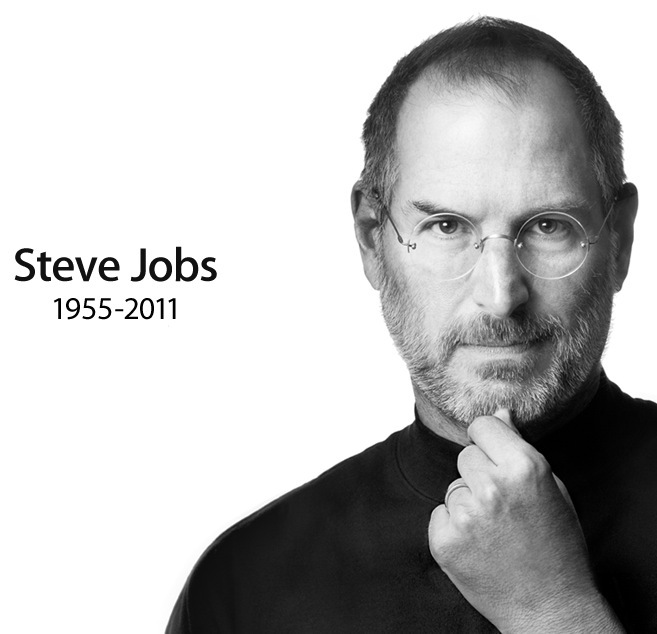If you were to describe my country, Italy, as a country fearful of change, you wouldn’t be too far off from the truth. If Italians could live under a bubble preventing time from passing, most of them would jump at the opportunity. I have come to the conclusion that most of my fellow countrymen are luddite by nature.
Technology is seen as something to be feared, rather than embraced. Something new comes along, and people of all ages — including part of the youth — will complain that it’s unnecessarily complicated, that things worked just as fine before, and that “back then” nobody was forced to learn anything new. I have wondered why people think this way for a few years now, and I think I’ve come to the conclusion that it has to do with history.
Even today, a hundred and fifty-one years after the unification of the country, most Italians don’t really feel like they are Italian. They are more likely to label themselves as coming from a certain region, city or even neighborhood. The North has been blabbering about independence for decades now, and the South is still stuck in the grip of organized crime, the mafia and its cousins sometimes being more popular and better-considered than the State. Indeed, the roots for such criminal organizations can be traced back to the bandits who fought against the forced “Northernization” of the peninsula — more specifically, the so-called Piemontesizzazione, as the first King of Italy just exported the bulk of Piemontese laws to the rest of the newborn country — immediately after the unification.
In a sense, that’s why Italians still today consider “the State” to be inherently evil and that it should leave people alone instead of meddling with their lives. You seldom find someone who thinks that s/he, as a citizen, is him/herself part of “the State”. Rather, most people will complain about “the State” and, why not?, rip it off if possible: after all, from their point of view it’s just reciprocation.
For this reason, each and every change is perceived as preposterous, required by the evil State for the sole reason of complicating the citizens’ life, not unlike the way a big, seemingly almighty cat plays with a tiny mouse solely for its own amusement.
But it’s with technology that Italians show their chronic opposition to change. Most people over 50 have no clue whatsoever about computers. Unless they are introduced to them by some younger member of the family, or through some mandatory course on their workplace, most senior citizens will be completely oblivious to computers. Even among those who do use them, most of them will remain antagonistic to the machine.
Even more worrying is the fact that many young people are virtually as uninterested to computers as such, save for the fields in which they are deemed useful from their point of view: (illegal) file sharing, homework (and plagiarism), social networking, porn and the like. The interesting thing here is that the same young people spend most of their time with a smartphone in their hands, yet refuse to learn the basics of computing. I personally know an eighteen-year-old who claims that she never really learned how to use a computer because she never found a use for them.
Most of my foreign readers are probably shocked at this point, but see, the sad truth is that in Italy the internet is not necessary to carry on with your daily life. Nobody expects you to have an email address, or to submit documents online. I know doctors who proudly take note of their appointments on a dear old paper calendar, rather than using a computer, an iPad, a smartphone or even a measly electronic “data bank” from the 90s. They are completely oblivious to the capabilities that a digital system can provide — such as keeping an easily searchable long-term log of appointments, or cross-referencing notes — because they are not familiar with the possibilities, and even if they were, they wouldn’t want to spend/waste any time learning how to use the system.
In this country, most companies don’t even have a one-page website. Those who do, seldom update it; it quickly turns into a stale flyer, but they don’t care. Who goes to the website, anyway? After all, if clients want some information they’d better just call: writing to a company’s e-mail address almost invariably results into never receiving a reply, or immediately receiving a notification that the recipient’s mailbox is full, a clear sign that it’s been left unchecked for the longest time.
When it comes to money, Italians’ fear for change goes into overdrive. Given the incredible level of corruption in the country, there have been feeble attempts at reducing the maximum amount that can be paid in cash, forcing any higher-value transaction to be carried out through means that leave a trail. Recently, this limit has been lowered to a thousand euros. One would expect that the strongest opposition to this would come from lobbying entrepreneurs, but no: the ones who complained the most were retired senior citizens. The new limit would prevent those among them who make enough (and the numbers are getting fewer and fewer) from picking up their whole pension in cash in a single visit to the post office. Of course, having it deposited to a checking account would solve the problem immediately, but many people in Italy do not have a checking account altogether, in part due to the fact that they have the highest fees in all of Europe. Indeed, many people only open up one when they are required to, such as when their employers insist that they are paid with a direct deposit, or when they need to purchase a house and need a mortgage.
Credit card usage is also lower than most of Europe, as many people simply don’t trust them (or lack access to them, if they have no checking account). I know people who only use them at ATMs to withdraw cash, which — albeit useful in emergencies — is quite a silly thing: why not just use them directly to pay in stores?
When I read that Sweden is starting to consider the wholesale (pun intended) elimination of cash as most Swedes use other means of payments and micropayments, I was stunned. That will never happen here. The people, the commoners if you will, would object too strongly, failing to see that it would actually lead to a greater accountability that would reduce most of the corruption. It would not make it entirely impossible to use money for bribes, of course, but it would require more careful planning than just not releasing an invoice or a giving out a receipt to clients. That alone would be an immense improvement, but then again, it requires a paradigm shift that most people are simply not willing to take out of laziness, rather than out of genuine concerns about privacy and tracking.
About a month ago, my region switched off all analog TV transmissions, finally entering the all-digital era. This was supposed to happen two years ago, but it kept being postponed over and over, in part due to the political agenda, and in part due to the fear that people would not be able to survive — metaphorically speaking, of course — the switch. It’s not hard: if you have a new TV, you’re already set; if not, you need to get a cheap converter box that you connect between the antenna and the TV. In some cases, as ironically happened to my very own household, you may need to call and pay a technician to replace and/or re-aim your antenna to improve reception. The government, years ago, even started a controversial campaign that allowed people to buy converter boxes at a discount, effectively semi-subsidizing the purchase of these devices. Yet, even today, many people are incredibly confused about the whole matter, and the refrain is always the same: why does my grandma need to learn how to use a converter box with a different remote? why does my grandpa have to spend money to get his antenna replaced? And mind you, these are the same people who complain that there’s nothing on TV. They may have to shell out some cash in some cases (though for most households the expense is simply the cost of the digital receiver, which retails for prices as low as €15), but they would get many more channels to watch for free after that. In most cases, moreover, the switch would be so simple that any nephew or grand-daughter can explain the eldest how to proceed.
The people who complain about how “the government did this to make us spend more money” (without realizing that the money spent, if any, goes to private companies, such as stores and antenna technicians) also fail to realize that the frequencies that get released will be auctioned off for mobile broadband, which will improve the availability of Internet access in areas currently not covered by DSL.
But, then again, who needs the Internet in Italy? The “Internet use in households and by individuals in 2011” report by Eurostat tells a fairly discouraging tale. A note for non-Europeans: “EU27” refers to the whole European Union, which includes 27 Member States (Austria, Belgium, Bulgaria, Cyprus, Czech Republic, Denmark, Estonia, Finland, France, Germany, Greece, Hungary, Ireland, Italy, Latvia, Lithuania, Luxembourg, Malta, Netherlands, Poland, Portugal, Romania, Slovakia, Slovenia, Spain, Sweden, United Kingdom) as opposed to “Eurozone”, which refers to the 17 Member States currently using the Euro as their currency.
Whereas 73% of the households in the EU27 had Internet access in 2011 and broadband availability was at 68%, only 62% of Italian households have Internet access and barely 52% have broadband. This is in stark contrast with other Western European countries such as France (76% and 70%, respectively), Belgium (77% and 74%), Germany (83% and 78%) or the Netherlands (94% and 83%.) What’s most amazing is that Greece jumped from 25% and 7% in 2007 to 50% and 45% in 2011, and Romania jumped from 22% and 8% to 47% and 31% during the same time span. Italy’s increase is still remarkable (43% and 25% to 62% and 52%), but we remain steadily behind the average.
It gets worse when the actual usage of the Internet, rather than its bare availability in households, is taken into account. An average of 71% of EU27 citizens used the Internet within the 3 months before the survey, 73% used the Internet within the 12 months before the survey, and 24% never used the Internet. The report doesn’t state whether this means never used it at all, or never used it within the past 12 months; in any case, this is only marginally relevant for the sake of the analysis.
In Italy, only 54% used the Internet within the last 3 months and 57% within the last 12 months, while 39% never did. Comparatively, in France these values are 78%, 80% and 19% respectively, in Germany they are 81%, 83% and 16%. Scandinavian countries lead the chart, with Sweden chiming in at 93%, 94% and 5%, and Norway at 93%, 94% and 5%. Iceland shows an even higher Internet penetration, but I’m concentrating on mainland Europe here.
The important fact here is the number of people who never used the Internet. Italy’s value is 39%, the highest in Western Europe after Greece (45%) and Portugal (41%), while the EU27 average is 24%. That’s almost half as much.
Moreover, only 51% of Italians access the Internet at least once a week and only 49% do so daily, while in Germany these values are 77% and 63% respectively. Unsurprisingly, 82% of Norwegian users access the Internet daily, and 91% do so weekly.
Italians are also not very keen on purchasing goods or services over the Internet. Compared to an EU27 average of 43% over the past 12 months, only 15% of Italians carried out economic transactions over the web. This is an incredibly lower value compared to France’s 53%, Germany’s 64%, the Netherlands’ 69% and Norway’s 73%.
The report doesn’t tell the reasons for this negative achievement, but I think I can elaborate a little bit on that. As I’ve said in the first part of this article, Italians are somewhat afraid of change and are particularly opposed to payment methods other than cash. However, while you can enter a store and pay with notes and coins, you cannot do so over the Internet unless you choose cash-on-delivery options, which are normally more expensive. This, together with the ancestral fear of frauds, lack of widespread Internet access — Italy had one of the strictest law on public wi-fi that simply killed the so-called “Internet cafés” —, generalized computer illiteracy, very high shipping costs and incredibly complicated bureaucracy, effectively hinders any possibility of widespread adoption of electronic commerce. This is not to say that e-shops cannot thrive in Italy; many of them do (and I have first-hand experience of this, because in 2008 and 2009 I worked in a small store that also sold its products online), but most of the buyers are usually returning customers. It’s hard to make a company grow in such an environment, and online businesses shut down daily.
All of this unfortunately triggers a chain reaction: since few people use the Internet and therefore few people will buy online, few companies will be eager to make business online (and the few public authorities will invest in letting users deal with them over the web, given the investment required and the current state of the economy.)
In the EU27, 41% of people interacted with public authorities over the Internet in the last 12 months, but only 22% did so in Italy. The pattern repeats again: France chimes in at 57%, the Netherlands at 62% and Norway at 74%.
Italy’s percentage is only about half of the average, and that’s frankly not surprising. Our bureaucracy is so heavy and complex that moving even if new material were handled digitally, old certificates will probably never be transposed to the 21st century.
Again, I can provide first-hand experience: my parents live in Chieti but they married in my mother’s town, Vasto, which is located about 75 kilometers away. They need a marriage certificate, and the only way to have it is to go to the city hall in Vasto and request it there. There is simply no way to request it at the local city hall and have them get it via fax or something like that, let alone obtaining it directly online. Moreover, since it’s a semi-private act, the request cannot be delegated to some relative who lives there, so they have to be there in person. The most ironic part of this is that not only this will take the better part of a day and money to pay for gas and highway tolls, but the certificate itself will not even be free. But, once again, since very few people would request this kind of data online, there is no reason for public authorities to invest into a massive digital upgrade.
This whole chain reaction leads to an unpleasant conclusion: one of the reasons for Italy’s economy downfall is this country’s inability to change and become modern by embracing technology. What’s even sadder is seeing hordes of youths, the same youths who fiddle with their parents-funded smartphones all day long, puzzled in front of a computer screen. How can we expect things to improve if our future doctors, lawyers and entrepreneurs are confused by paragraph styles in word processors?




